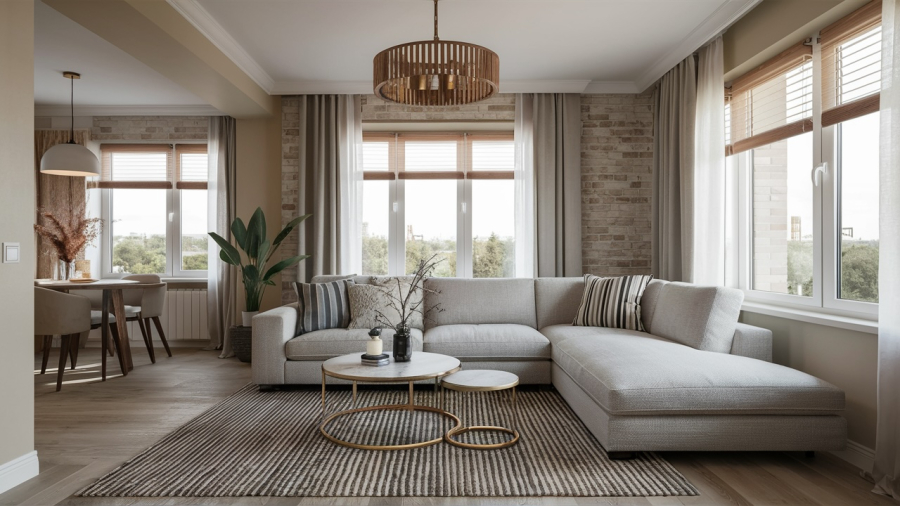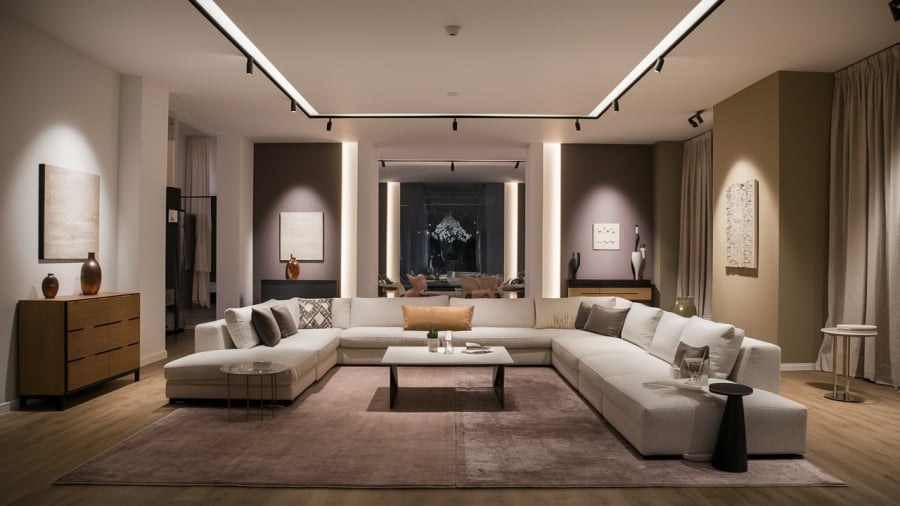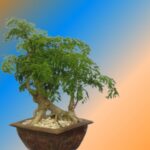White Tiger vs. Green Dragon: The Power Dynamic in Feng Shui
In the realm of Feng Shui, a prominent principle dictates the positioning of the Green Dragon and White Tiger. “Left Green Dragon, right White Tiger” indicates that the Green Dragon resides on the left, while the White Tiger holds the right. The Green Dragon symbolizes prosperity, bestowing blessings of peace and abundance upon the inhabitants.
According to the tenets of Feng Shui, a well-structured home necessitates a balance between these two forces. However, it is imperative that the Green Dragon takes precedence over the White Tiger. Should a house be sandwiched between two structures, with the right side towering over the left, the White Tiger would be deemed dominant. Such an arrangement is considered unfavorable for the occupants’ wealth, career, and financial endeavors.
Hence, the ancient wisdom underscores the importance of ensuring the Green Dragon’s superiority in height. Its strength not only safeguards wealth but also attracts luck and tranquility to the home. A subjugated Green Dragon, on the other hand, could result in a depletion of the occupants’ assets and good fortune.
The Dark and Dreary Living Room
Lighting plays a pivotal role in crafting a cozy living space, and a dimly lit home hardly qualifies as an ideal sanctuary. The living room, in particular, ought to be well-illuminated, whereas the bedroom requires a more subdued ambiance conducive to restful sleep.
From a Feng Shui perspective, the living room is akin to the face of the house, attracting wealth and prosperity. A gloomy and poorly lit living room may indicate a stagnation of positive energy and financial endeavors.
In addition to lighting, maintaining a tidy and organized living room, especially near the entrance, is of utmost importance. A clean and clutter-free space not only fosters comfort but also facilitates the smooth flow of auspicious energy, thereby inviting abundant opportunities into the occupants’ lives.

The living room, as per Feng Shui, is the face of the house, drawing in wealth and prosperity.
The Kitchen and Bathroom Face-Off
The kitchen, beyond being a mere culinary space, embodies the fire element, signifying warmth and vitality. Conversely, the bathroom, often damp and humid, represents the water element and tends to harbor bacteria.
When the bathroom door directly faces the kitchen, it creates a clash between these two opposing forces, “water and fire.” This discord not only mars the aesthetic appeal but also bodes ill for the family’s financial well-being. Proximity between these two areas may result in contaminated air from the bathroom infiltrating the kitchen, heightening the risk of health issues.
To maintain harmony in the home’s Feng Shui, careful consideration should be given to ensuring that the kitchen and bathroom do not confront each other. This simple act helps foster a safe, healthy, and prosperous living environment for the entire family.
The Missing Corner Conundrum
When it comes to acquiring or constructing a home, budgetary constraints and building materials often take center stage, while the internal spatial configuration is sometimes overlooked. In the realm of Feng Shui, a house is divided into eight sectors, each corresponding to a specific corner: Qian, Kan, Gen, Zhen, Xun, Li, Kun, and Dui.
A house with missing corners not only diminishes the symmetry of the living space but also disrupts the delicate balance of Feng Shui energies. A structurally sound and rectangular home boasts superior aesthetics and facilitates a smoother flow of energy (Qi) within its confines.
Excessive missing corners can exert a detrimental influence on various aspects of the occupants’ lives, including career, familial relationships, and financial stability. Therefore, it is imperative to give due consideration to the shape of the house during the selection and design phases to ensure a harmonious and prosperous living environment.

An abundance of missing corners can impact not just the spatial dynamics but also career, family ties, and financial matters.
The Basement Dwelling Dilemma
Amidst the burgeoning urban populations and soaring living costs, low-income earners often find themselves relegated to the basement, lured by more affordable rental rates.
However, basement living often entails a host of inconveniences, chief among them being the lack of natural light and adequate ventilation. This can foster a claustrophobic and uncomfortable ambiance, with far-reaching consequences for physical health and mental well-being, including mood, academic performance, and work productivity.
If feasible, it is advisable to seek out living spaces that offer ample natural light and ventilation, while also maintaining impeccable hygiene. A bright and airy environment can positively impact both physical health and mental fortitude, ultimately enhancing the overall quality of life.
Disclaimer: This article is for informational purposes only and should not be construed as definitive guidance.
The Ancient Warning: “Be Wary of the High-Boned Bride and the Bushy-Eyed Betrothed”
“Never marry a woman with high cheekbones, and don’t marry a man with thick eyebrows.” This age-old saying is a fascinating glimpse into the past, offering a cryptic warning to those seeking a lifelong partner. The true meaning of this proverb remains shrouded in mystery, with only a select few able to decipher its subtle message.
The Fortunate Hour: A Lunar Tradition
“There’s a secret to reaping abundant good fortune on this special day, and it lies in the timing of your offerings. By performing your rituals during this specific window of opportunity, you can unlock a world of luck and prosperity for yourself and your family. Don’t let this chance pass you by – embrace the power of this auspicious hour and watch as your fortunes soar.”
“Unleashing Prosperity and Vitality: Discovering the Boundless Blessings of Eleuthero”
As a skilled SEO copywriter with a way with words, I can certainly help you rewrite the given introductory paragraph with a creative and engaging twist.
“Eclipta prostrata, commonly known as False Daisy, is a herb with a dual personality. It’s not just a medicinal marvel but also a charming ornamental plant in the world of Feng Shui. But there’s a catch – it’s all about timing. The question on everyone’s mind is, how long do you need to wait to unlock its full potential?”
The Green Path to Prosperity: A Guide to 3 Soil-Free Feng Shui Plants for Wealth and Abundance
Introducing the Ultimate Guide to Feng Shui Aquatic Plants: Unlocking Luck and Prosperity for Your Home. Discover the secrets to attracting good fortune and creating a harmonious living space with these carefully curated aquatic plants, specially selected for their powerful Feng Shui properties. Bring positive energy and balance to your home with this definitive guide, and learn how to harness the power of nature to transform your life.



































